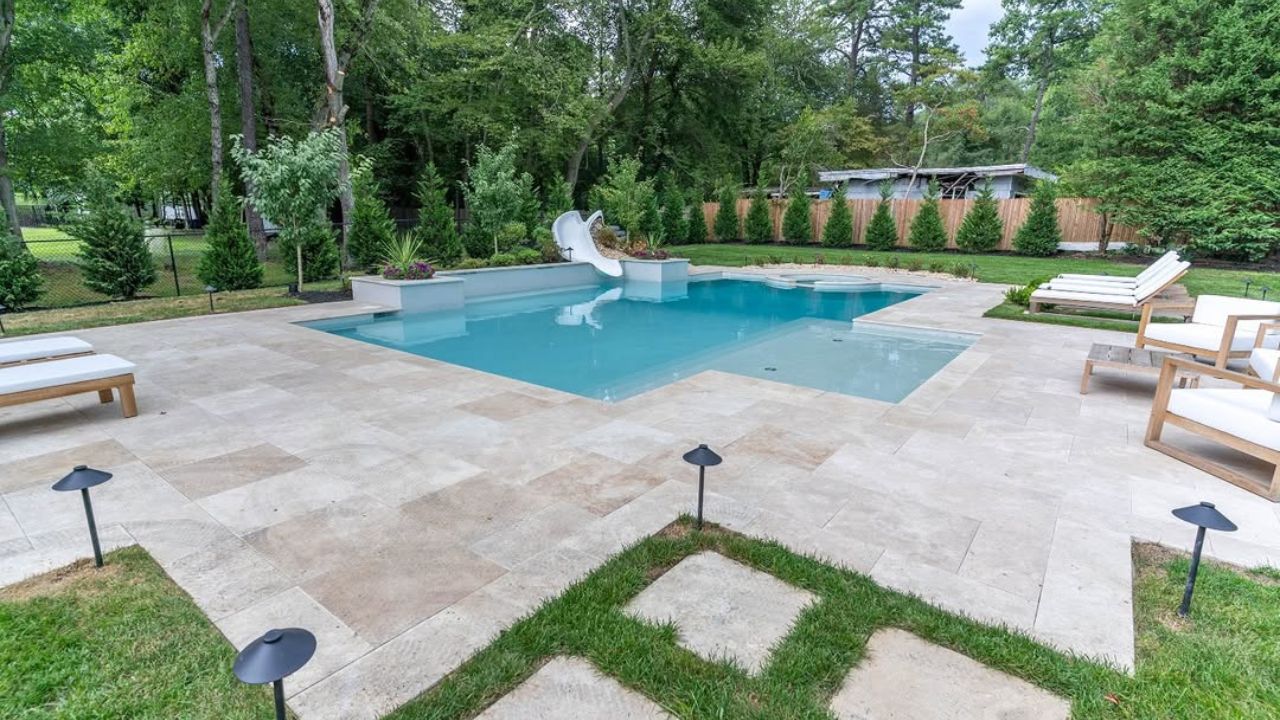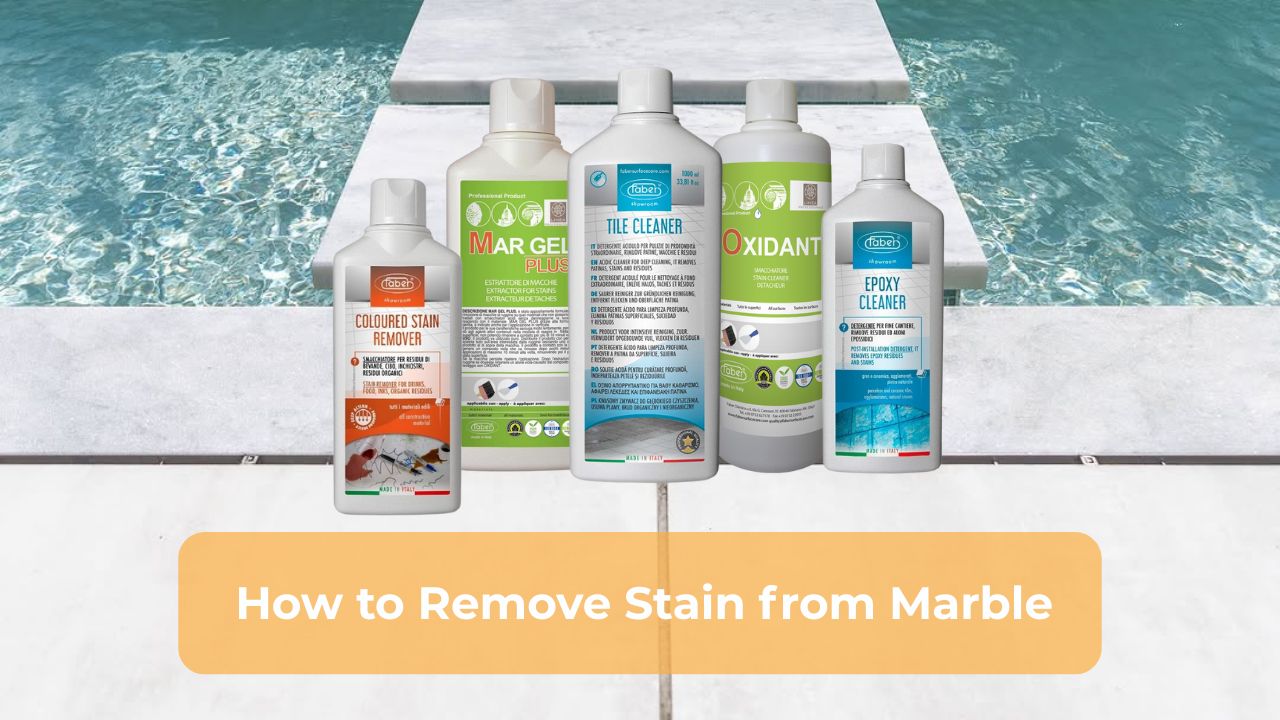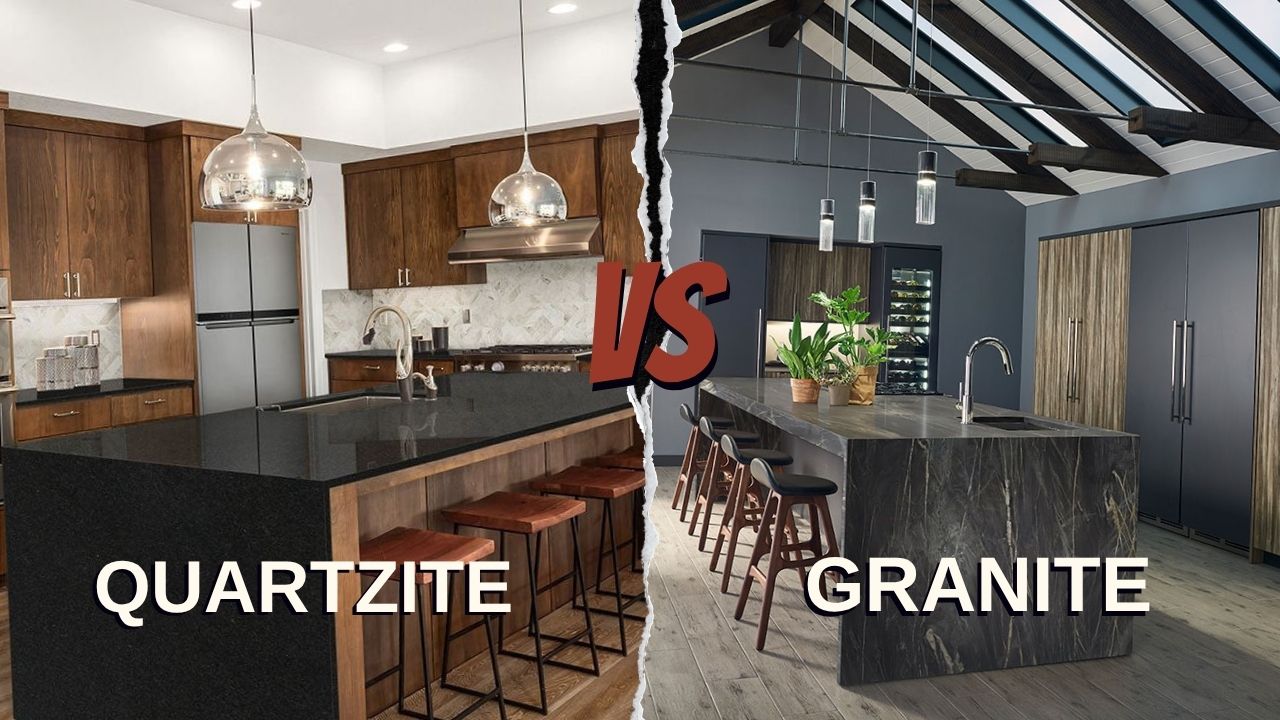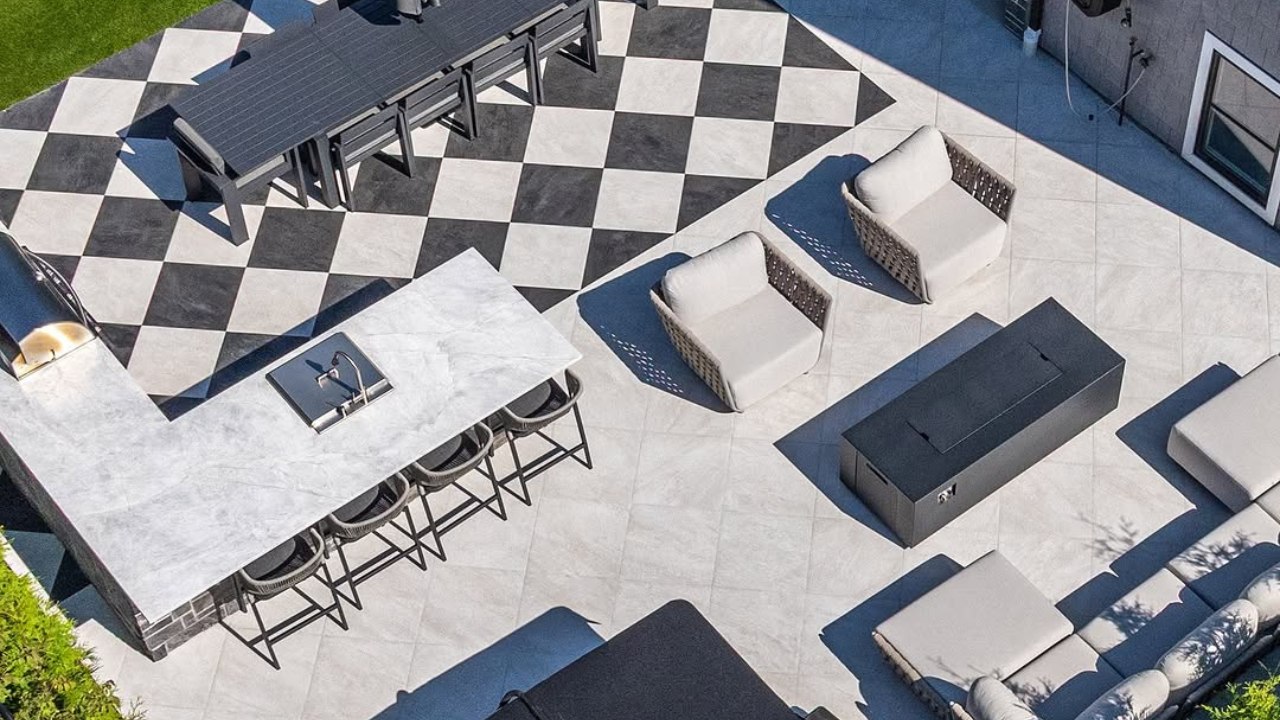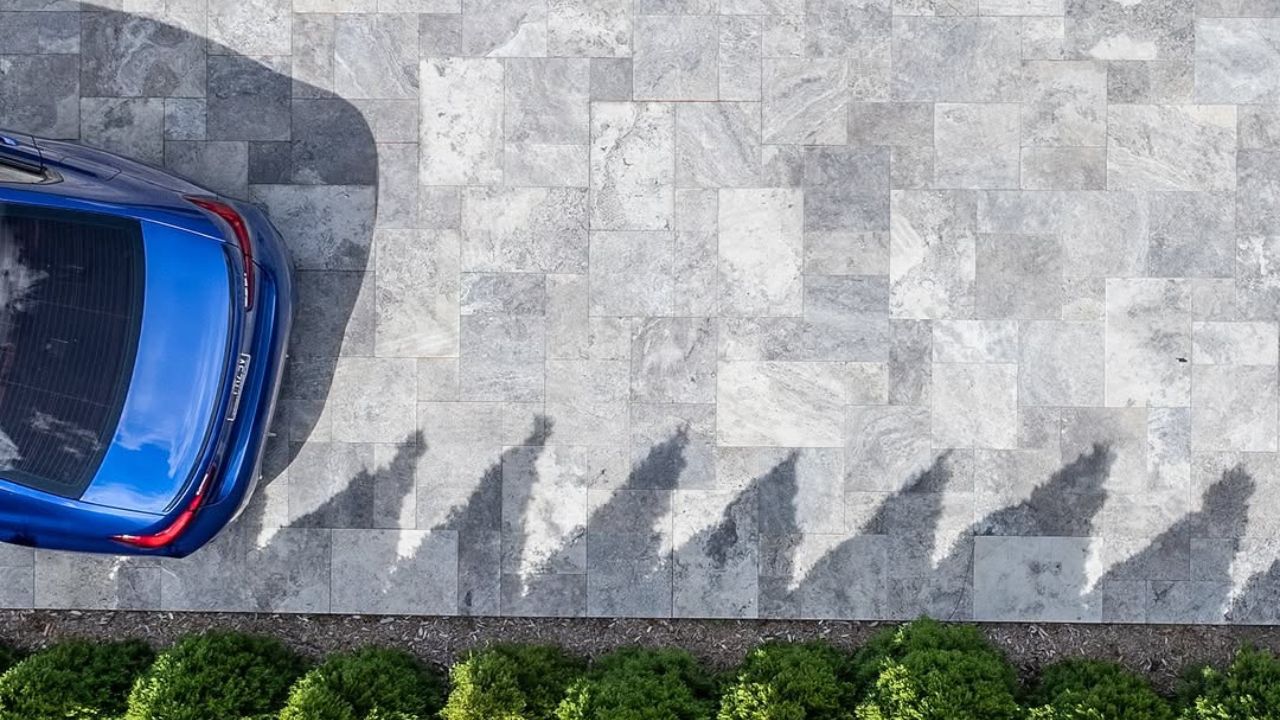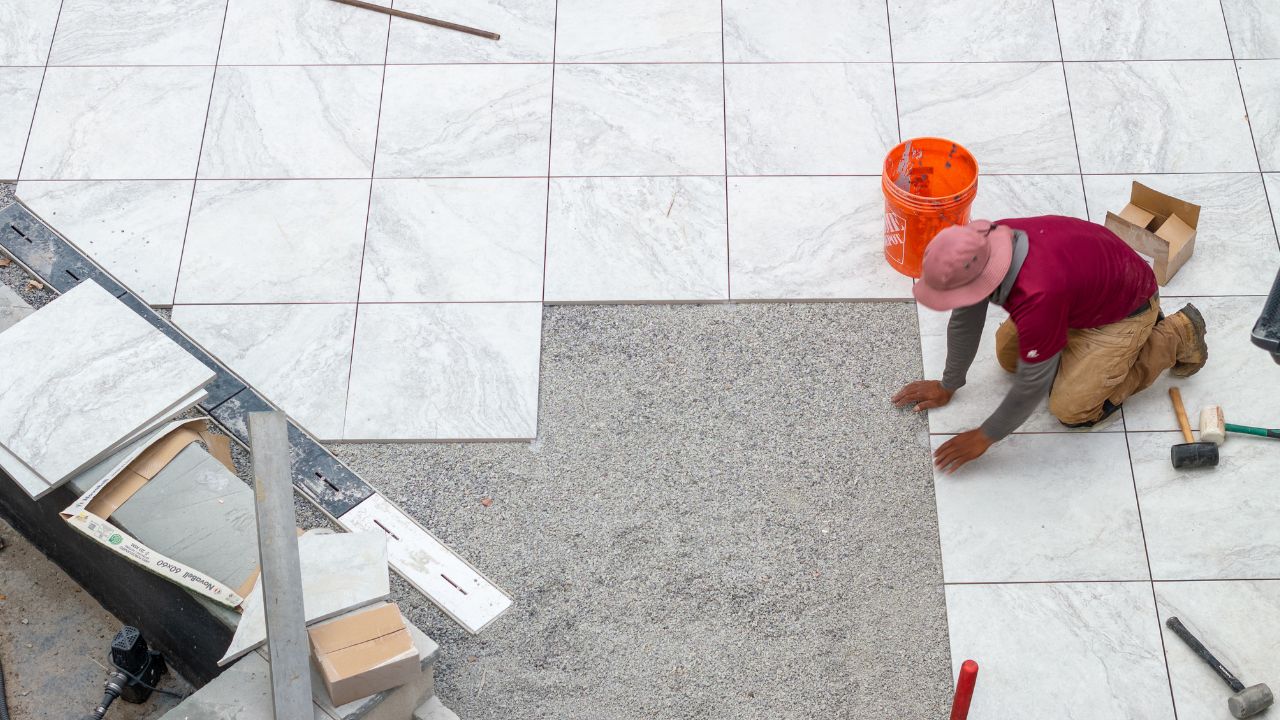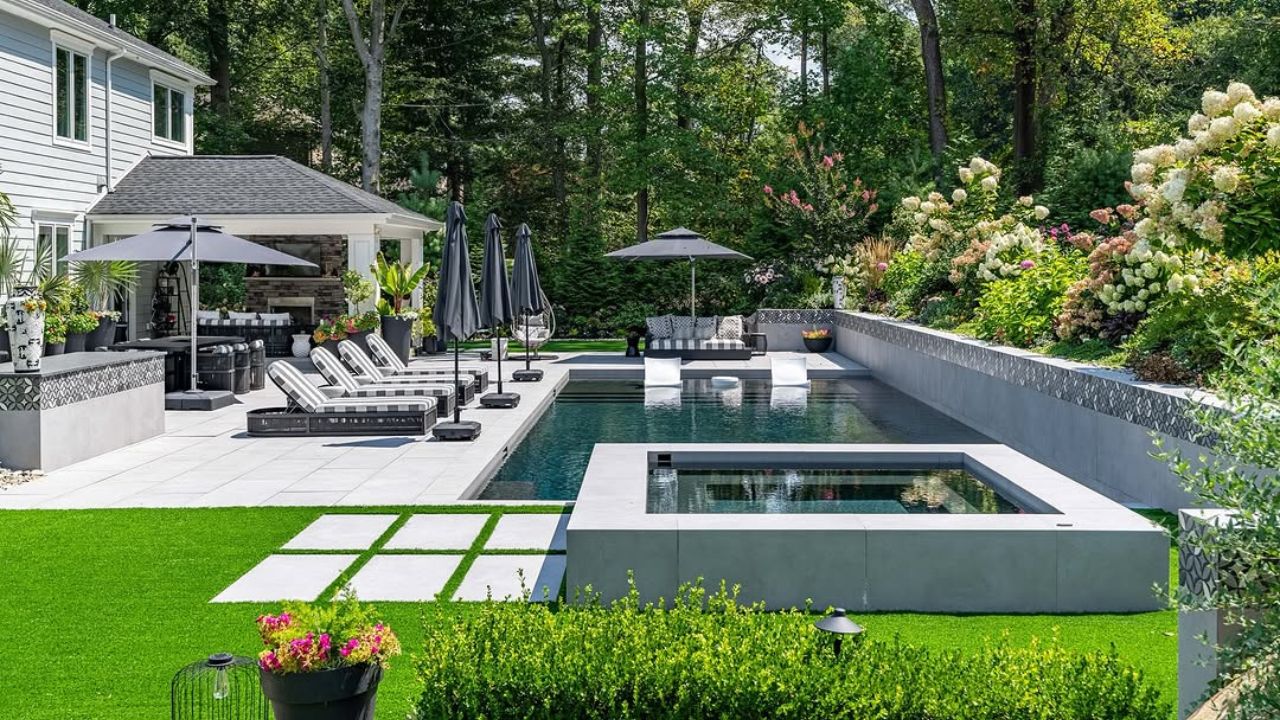Travertine is one of the most popular options to be used around the swimming pool area. This stone pool deck offers a naturally textured surface that gives it an aged look. Not only is the look distinct, but it adds to its functionality as well. You get a naturally slip-resistant surface, especially with a honed finish. But there are several reasons why travertine around pool or as travertine pool deck material is an ideal choice.
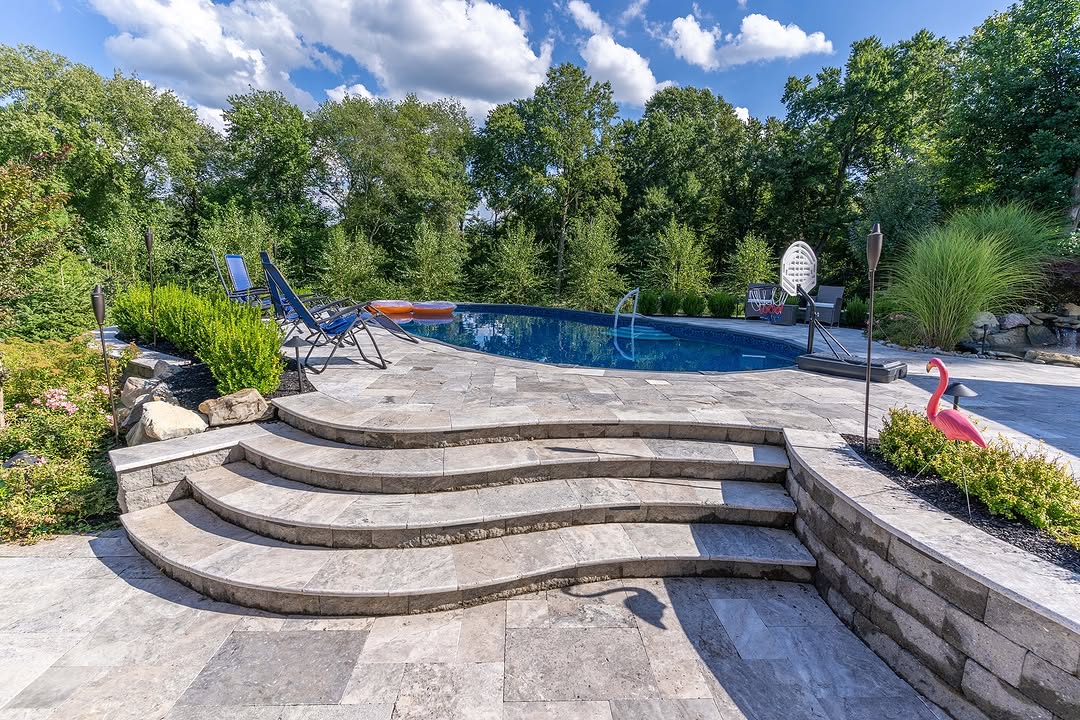
Here is what you need to know:
What Are The Reasons To Use Travertine Around Pool Areas?
Travertine is a popular material choice for the pool area. Apart from the looks, there are several reasons why using travertine around your pool makes sense:
Naturally Slip-Resistant
Travertine pavers have a naturally textured and non-shiny surface that helps prevent slips, even when it’s wet. Finishes like tumbled feature a soft and pitted texture. For families with kids, pets, or seniors, this natural grip adds peace of mind without needing extra coatings or rubber mats.
Stays Cool Underfoot
Compared to materials like concrete or porcelain pool deck, travertine doesn’t absorb heat. It has a porous surface that offers better air circulation. This keeps the surface cooler even on the hottest days. This makes it comfortable to walk barefoot, especially important near pools where people tend to lounge, walk, and play.
Handles Water Well
Travertine absorbs a small amount of water. This results in a few water puddles or a wet surface on your travertine pool deck. They withstand mold and mildew growth. Its ability to drain and breathe makes it suitable for both humid and dry climates.
Looks Timeless
Travertine has a naturally aged surface due to its pitted surface. This gives the travertine a distinct look that never goes out of style. Instead, it provides an organic look that blends well with elements of pool area landscaping, water features, and architecture. Whether your pool area is modern or traditional, travertine works without clashing or overwhelming the design, even in unique patterns.
Durable and Weather-Resistant
Travertine pool deck is one of the most durable natural stones. It is the type of limestone that takes its shape over centuries. Its density and strength give it the ability to handle years of foot traffic, furniture movement, and sun exposure. It doesn’t crack easily in hot or cold temperatures, making it a good fit for most climates.
Easy to Maintain
Unlike other natural stone options, travertine around pool is still a low-maintenance material. Travertine sealing every year or two, and it will resist stains from pool chemicals, sunscreen, and leaves. Cleaning travertine is simple and usually requires just sweeping and an occasional rinse. And if it ever shows signs of wear, professional travertine restoration can bring it back to life. Unlike concrete, it doesn’t need resurfacing or repainting over time.
Adds Property Value
Travertine is a premium-looking looking beautiful natural stone. Just like marble, it also adds an elegant curb appeal to the area. It can also increase the value of your property. Potential buyers will see travertine as a sign of quality and thoughtful design, making your home more desirable if you ever sell.
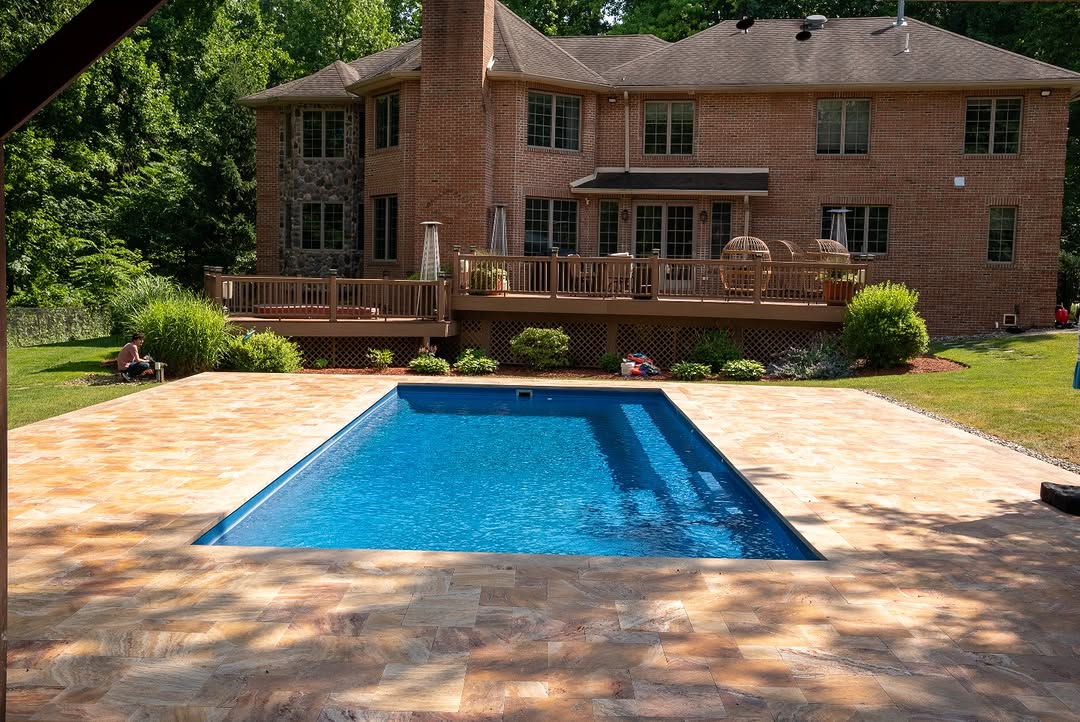
Travertine vs Concrete vs Porcelain Tile As Pool Deck Materials
Here is a detailed comparison of travertine with other deck materials, including concrete and porcelain
| Feature | Travertine | Concrete | Porcelain |
| Slip Resistance | High (natural) | Low (unless textured) | Medium-high (when textured) |
| Heat Retention | Low (cool underfoot) | High (can burn skin) | Medium-high |
| Aesthetic Appeal | Natural & timeless | Plain | Modern |
| Lifespan | 20+ years | 10–15 years | 15–20 years |
| Drainage/Porosity | Excellent | Poor | Poor |
| Maintenance | Low | Medium | Low |
As you can see, the travertine is outperforming in the key features, better in slip resistance, low heat retention, aesthetics, and low maintenance natural stone. Just get your travertine from a reputed natural stone supplier like NT Pavers. This is how you can get the most from your travertine around pool.
What Finishes of Travertine Are Best for Pool Decks?
Travertine comes in several finishes. For pool use, tumbled travertine is preferred. It has a soft, weathered look with a non-slip feel. It also hides dirt and water stains well.
Other finishes, like brushed or honed travertine, can be used on vertical elements like coping or garden walls. However, polished travertine should be avoided near water as it becomes slippery.
Travertine Finish Types:
- Tumbled Travertine: Best for pool decks
- Brushed Travertine: Slightly textured, good for aesthetics
- Honed Travertine: Smooth, for indoor/outdoor transitions
- Polished Travertine: Indoor use only
Is Travertine Around Pool a Good Long-Term Investment?
When selecting landscaping material, you may wonder if the travertine is good for long-term use. Travertine pavers, Travertine tiles, or travertine pool coping may cost more at first, but considering the features and benefits, it justifies the cost.
- First, it doesn’t crack or stain easily, and it ages naturally rather than deteriorating. You won’t need to resurface it every few years like stamped concrete.
- For homeowners, this translates to fewer repairs, higher resale appeal, and timeless curb appeal.
- For professionals, it means delivering projects that clients remember years later.
Travertine around pool is an ideal combination for clients who want a balance of luxury, safety, and function in their outdoor living spaces or around the pool without flashy maintenance.
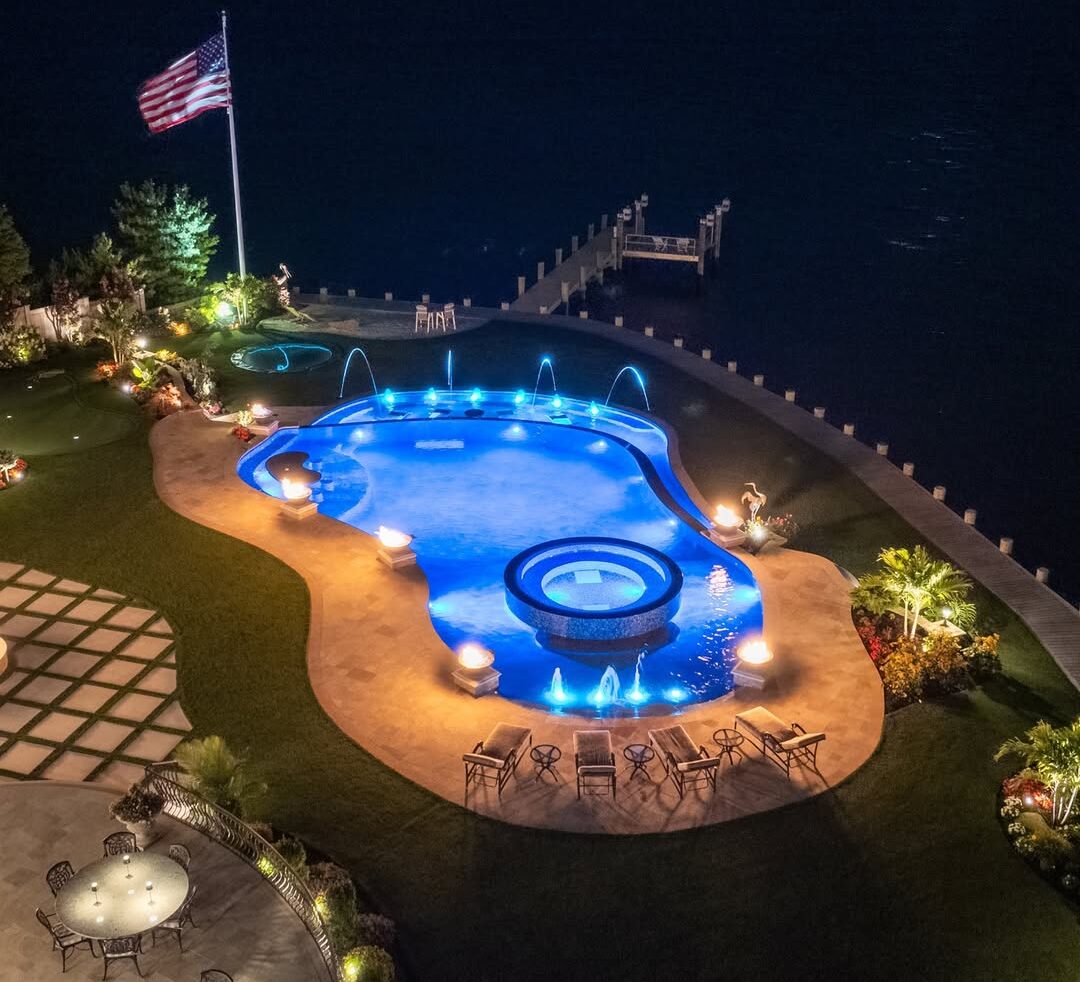
FAQs About Travertine Around Pools
Let’s answer some of your questions about travertine around pool.
Is travertine slippery when wet?
Tumbled travertine is not slippery when wet. Its naturally textured surface helps improve traction, even when water is present.
Does travertine stain near pools?
Travertine is resistant to stains when sealed properly. It can also resist chlorine, sunscreen, and organic matter if you reseal it every 1–2 years.
Is travertine better than pavers?
Yes. Travertine is a type of paver, but it is a natural stone, not a concrete product. It offers better cooling, richer appearance, and improved longevity over concrete pavers.
Can you use travertine with a saltwater pool?
Yes. Travertine handles saltwater well. Just rinse it occasionally and seal it annually to maintain performance and appearance.
How long does travertine last around a pool?
With basic maintenance, travertine can last 20–30 years or more. Some installations have lasted even longer with proper care.
Does travertine require sealing?
Yes. Sealing travertine helps protect it from moisture, staining, and mildew, especially in high-splash zones like pools.
Bottom Line
Travertine is undoubtedly an ideal choice around the pool. Even being natural stone, it offers better durability, slip resistance, and stain resistance with just regular travertine sealing. Using travertine around pool is a wise idea compared to other paving materials like concrete and porcelain. You can upgrade your backyard or design a luxury resort-like pool space with travertine effortlessly. You will surely enjoy every barefoot step with confidence

